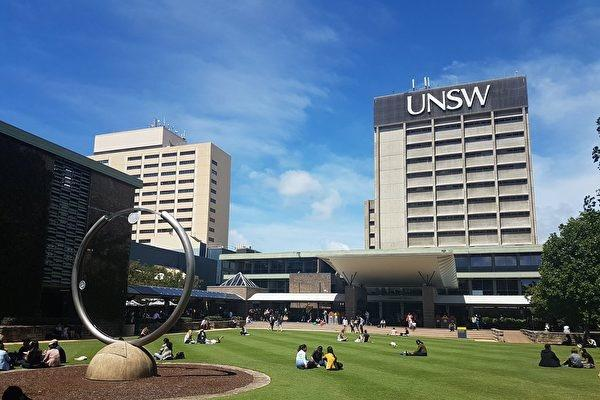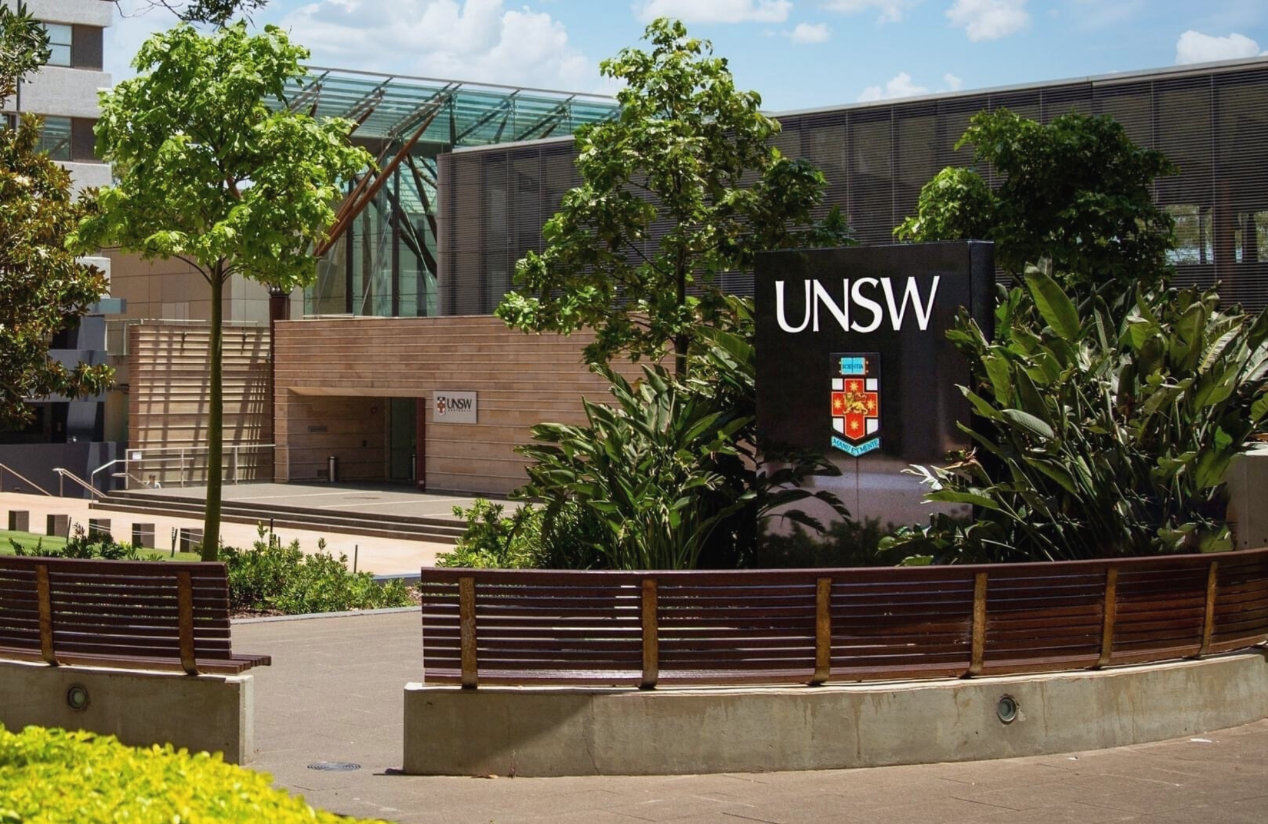-
 Workshop | Transforming Education: The Sociological and Pedagogical
Workshop | Transforming Education: The Sociological and Pedagogical
Impacts of Generative AI and Learner AutonomySYDNEY, AUSTRALIA
October 28, 2024
Workshop Basic Info:
Organizer:
The University of New South Wales
Workshop Chair:
Dr. Sara Mashayekh
Researcher in The University of New South Wales
Personal Bio:
Dr. Sara Mashayekh is an experienced educator and researcher in UNSW who has also served as a project manager and learning designer in university initiatives. She frequently publishes in and reviews for peer-reviewed journals and presents at international conferences as the invited speaker and presenter. Her contributions to university and state research projects have primarily focused on educational technology, pedagogical tasks, formative assessment, and teacher education.
Workshop Committee Members
| Dr. Sara Mashayekh | UNSW | Sara.mashayekh@unsw.edu.au |
| Dr. Ali Darejeh | UNSW | Ali.darejeh@unsw.edu.au |
Highlights
The workshop explored the impact of generative AI on student learning and the potential challenges students face when receiving AI-generated feedback. One primary challenge discussed was that students may struggle to effectively evaluate, apply, and learn from the feedback provided by AI tools. Without adequate support, students could misunderstand or misapply the feedback, hindering their learning progress. To mitigate these challenges, the workshop proposed strategies such as fostering student agency and autonomy, enabling students to critically engage with AI feedback. This included training students to assess the relevance and quality of AI feedback, encouraging them to seek clarification when necessary, and developing their ability to apply feedback in meaningful ways. Additionally, the workshop emphasized the importance of creating a learning environment where students feel empowered to make informed decisions about their learning process and take responsibility for their progress. By focusing on these strategies, the workshop aimed to equip both educators and students with practical insights to enhance learning outcomes, promote self-regulation, and cultivate a more independent, self-directed approach to learning in the age of generative AI. This approach encourages active engagement, collaboration, and continuous improvement, ultimately benefiting both students and educators.






Access to Workshop: ICIHCS 2024Workshop -- Sydney - YouTube
Venue:
Computer Science Building (K17), Engineering Rd, UNSW Sydney, Kensington NSW 2052, Australia

Background:
Generative AI has ushered in a transformative era in society, reshaping the way individuals access and interact with information. This revolutionary shift has the potential to redefine social dynamics, fostering greater autonomy and agency among individuals. As people navigate this new landscape, mastering the use of generative AI tools becomes paramount. This knowledge not only enhances their ability to engage with the world but also prepares them for a future where AI integration is essential. By understanding and harnessing the power of generative AI, individuals can better adapt to societal changes and contribute to the evolving digital culture.
Goal/Rationale:
This workshop aims to address the evolving dynamics of society in the age of generative AI. By identifying potential challenges individuals may encounter and exploring strategies to overcome them, we seek to empower participants to optimize their use of these technological tools. Recent advances in generative AI offer an opportunity to revolutionize social interactions and promote individual agency. Through a comprehensive examination of these advances, we aim to equip participants with practical insights to enhance their engagement with AI and foster greater autonomy. This workshop will provide valuable perspectives on how generative AI impacts social structures, relationships, and individual empowerment.
Call for Papers
This workshop is aimed at students, researchers, and educators interested in the societal implications of generative AI, although we will focus on the challenges faced by individuals in their last academic years. The aim is to explore various themes related to the integration of generative AI tools in everyday life, both in educational and domestic settings, to promote social agency and autonomy. Participants will engage in discussions to exchange experiences and ideas, and to share achievements. It is also expected to offer solutions, recommendations, and strategies to mitigate potential social challenges and enhance individual success. By considering the impact of these factors on social practices and habits, this workshop aims to provide valuable insights for all participants. Several keywords are listed to share the potential themes with interested participants, while the topics are not limited to the provided keywords.
Keywords:
- Social Dynamics of Generative AI
- Learner agency
- Autonomous Engagement in Learning Societies
Topics
- Theoretical Sociology
- Historical Sociology
- Sociology of Knowledge
- Sociology of Religion
- Sociology of Economy
- Rural Sociology
- Urban Sociology
- Political Sociology
- Sociology of Demography
- Classical Philosophy, Modern Western Philosophy
- Analytical Philosophy
- Theology, Religious Studies
- Philosophy of Science
Submission
All submitted papers should report original and unpublished work, experimental or theoretical, and are not under consideration for publications elsewhere. All papers should be no less than 4 pages in length and must strictly follow the format of the workshop template. All papers are subject to reviews and edits. Prospective authors are kindly invited to submit full text papers that includes title, abstract, introduction, tables/figures and references. Other styles of papers are not accepted. Please submit your papers in both .doc/.docx AND .pdf formats as attachments via email to ws_sydney@icihcs.org by the given deadline. It is unnecessary to submit an abstract in advance.
Dates & Fees
| Submission Deadline | October 21, 2024 |
| Workshop Date | October 28, 2024 |
| Notification of Acceptance | 7-20 workdays |
| Registration Fee | USD 450 (cover 6 pages) |
| Additional Page | USD 40/extra page |
Publication
Accepted papers of the workshop will be published in Communications in Humanities Research (Print ISSN 2753-7064), and will be submitted to Conference Proceedings Citation Index (CPCI), Crossref, CNKI, Portico, Google Scholar and other databases for indexing. The situation may be affected by factors among databases like processing time, workflow, policy, etc.
Publication info
Press: EWA Publishing, United Kingdom
ISSN: 2753-7064(print) / 2753-7072(electronic)
Ways to Participate
To break the barriers of time and space and to provide seamless communication opportunities for worldwide scholars, both online and offline participation methods are supported for the workshop. Participants are encouraged to bring their own insights, experiences, and examples to share with the group through either presenting a poster online or attending in person.
Poster Session
The poster session will provide an opportunity for researchers to present their work in a visual and interactive way, allowing for more engagement and discussion with other attendees. Authors of qualified papers will be invited to present their works with digital posters. We believe that this online poster session will still be a great platform for participants to share, discuss, and cooperate.
All accepted authors will receive an invitation email to present at the official workshop website. Please note that all poster presenters must submit the poster before October 21, 2024. Detailed information on your presentation date and time will be confirmed closer to the meeting. If you have any questions, please email ws_sydney@icihcs.org.
Attendance Onsite
The workshop welcomes participants to attend on-site and share the innovative experiences and researches with the group. Therefore, we provide some general information about the visa application. If you want to attend the workshop on-site, please email the workshop committee: ws_sydney@icihcs.org.
Poster Presentation Guidelines
-
Poster presentations must be prepared using the template provided:
*Poster layout template for poster presentation (download)*Poster layout background (download)
- Posters should generally be in A1 size (width: 594mm x height: 841mm) and include the followings:
Title, author and co-author names, and the affiliation(s) information.
Body parts, including "Abstract", "Introduction", "Methods", "Results", "Discussion" and "Conclusions".
- Presenters are suggested to set the font size properly and avoid placing anything at the margin part of the poster as it will be difficult to view.
- Posters should be well illustrated. All the pictures used should be high quality and with high resolution.
- All the posters will be displayed online on the official website. Each poster will have both a small thumbnail and a full-size version.
- Posters will be displayed during the online session. After the presentation is over, the full-size version of all posters will become invisible. But thumbnails still can be seen on the website.
(You can refer to the instructions for more detailed information. Additional presentation guidelines may be announced by workshop committees.)
VISA:
https://immi.homeaffairs.gov.au/home
In order to ensure the information is correct and up to date, there may be changes which we are not aware of. And different countries have different rules for the visa application. It is always a good idea to check the latest regulations in your country. You should confirm details with your local Consular Office. This page just gives some general information of the visa application.
Australia Visa Information
-
Do I need a visa to enter Australia?
- Unless you are an Australian citizen, you will need a valid Australian visa to enter the country. New Zealand passport holders can apply for a visa upon arrival in the country. All other passport holders, regardless of age, must apply for a visa before leaving home. You can apply for a range of Australian visa types, including tourist visas and working holiday visas, at your nearest Australian Embassy or Consulate. You can also apply for certain types of visas on the Australian Department of Home Affairs website.
- There are different Australian visa types available for travelers to Australia. Knowing which Australian visa to apply for depends on the length of your stay, your passport and the purpose of your visit. You'll also need to meet certain financial and medical requirements, be outside of Australia when applying and maintain health insurance for the duration of your stay.
-
Electronic Travel Authority Visa (subclass 601)
- This visa allows you to visit Australia as many times as you want, for up to a year, and stay for three months each visit. This visa is available to passport holders from a number of countries and regions, who live outside Australia. A step-by-step guide on how to apply is here.
- E-Visitor (subclass 651)
- This is a free visa for multiple visits to Australia for tourism or business purposes for up to three months at a time within a 12-month period. This visa is available to passport holders from a number of European countries and it cannot be extended.
- Visitor visa (subclass 600)
- The Visitor visa allows you to visit Australia, either for tourism or business purposes. It is open to all nationalities. Generally, a period of stay of up to three months is granted, but up to 12 months may be granted in certain circumstances. Applicants will have to pay a fee to submit their application.
-
How can I apply for an Australian tourist visa?
- The application process may differ depending on which visa you need. You can only apply for the Electronic Travel Authority visa (subclass 601) through the Australian ETA app. A step-by-step guide on how to apply is located here.
- For other visas, you can apply online by creating an ImmiAccount and completing the application process. Be sure to submit your application well in advance of your travel date to allow enough time for processing. You may be asked to provide further supporting information. You will be notified in writing if your tourist visa is approved and it will be digitally linked to your passport.
- For more information on different visa types, and Australian visa requirements including how to apply for an Australian visa, visit the Department of Home Affairs website.




